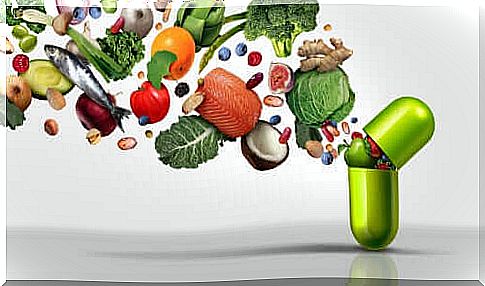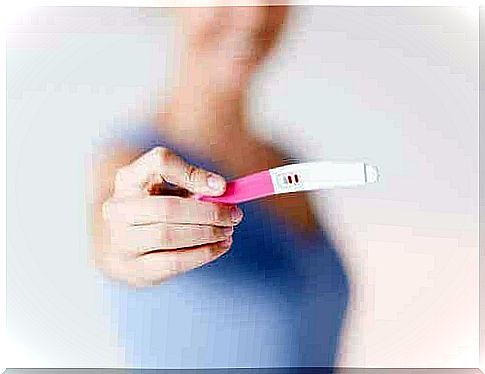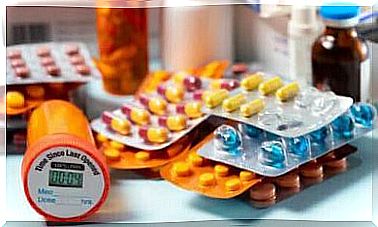Dietary Supplements For Pregnancy

Dietary supplements during pregnancy and breast-feeding contribute to the maintenance of good health for both mother and child. Optimal maternal nutrition is crucial for the proper development of the fetus.
You can prevent many problems with proper nutrition before and during pregnancy as well as during breastfeeding. It is common today for a specialist to recommend dietary supplements. Specific variants have been developed for each period:
- preconception
- pregnancy
- period of breastfeeding
Dietary supplements are important from preconception
The mother’s nutrition during the preconception period is a determining factor in achieving a healthy developmental process. This is because it significantly affects both fertility and the early stages of pregnancy. In addition, the growth of the fetus is closely linked to the nutrition of the mother.
Therefore, consult a doctor who can assess your health and recommend a suitable dietary supplement if you want to become pregnant. That way you can take the necessary measures to improve your lifestyle.
Consumption of long-chain omega-3 fatty acids, mainly eicosapentaenoic acid (EPA) and docosahexaenoic acid (DHA), contribute to good general health. A publication in the Annual Review of Food Science and Technology indicates that these fatty acids support the proper functioning of:
- the heart
- the lungs
- the immune system
- the endocrine system
Dietary supplements during pregnancy

A number of studies have shown the importance of nutritional supplements before and during pregnancy. This involves an adequate intake of nutrients such as:
- folic acid
- vitamin B12
- iron
- iodine
- micronutrients
Folic Acid (Vitamin B9) and Vitamin B12
These are essential for proper cell development. Folic acid plays an important role in early pregnancy, so it’s best to start taking supplements when you’re planning to conceive.
Research shows that the intake of this micronutrient reduces the risk of developing problems in the baby’s cognitive system. The best-known example of this is neural tube defects.
Iodine
The need for this element increases during the nine months of pregnancy. It is connected with the proper growth and intellectual development of a fetus. Women should get enough iodine as a deficiency can lead to congenital hypothyroidism in the baby.
Iron
The need for iron increases significantly during pregnancy, so it is recommended to take supplements regularly. In this way, both the mother’s and the baby’s needs are covered. Iron is an important mineral because it plays a role in transporting oxygen to cells.
Omega 3 fatty acids
These nutrients are essential for the body. DHA contributes to the development of a fetus’s brain, vision and eyes. There is also some evidence that these lipids improve the cardiovascular health of a mother and her child.
Vitamin D
This vitamin is important because it contributes to good bone growth and general development in children. Women should therefore take in enough vitamin D during pregnancy to be able to absorb enough calcium and promote good bone development.
Dietary Supplements While Breastfeeding

The nutritional needs are different and more demanding at this stage than during pregnancy. The baby gets the essential nutrients through breast milk.
Therefore, you should take supplements that can meet these needs. The nutrients that should not be missing in these preparations will be described below.
Folic Acid (Vitamin B9)
The mother’s vitamin B9 content may decrease during lactation because some of it passes into breast milk. Folic acid also helps reduce fatigue.
Vitamin A and D
Breast milk is the best source of vitamin A and vitamin D. The second contributes to the absorption and utilization of calcium. The amount of vitamin D in breast milk depends on whether the mother is getting enough vitamin D.
Iodine is one of the crucial dietary supplements
Breastfeeding women need almost twice as much iodine as women who don’t to ensure the necessary supply for their baby.
Calcium and Iron
The mother’s need for calcium and iron increases significantly during the lactation phase. Iron is critical for the formation of both red blood cells and hemoglobin.
Omega 3 fatty acids
Omega 3 fatty acids are, as mentioned before, necessary nutrients for the organism. Docosahexaenoic acid (DHA) contributes significantly to the normal development of the brain and eyes of the infant. It can also help prevent certain inflammatory diseases.
Nutritional supplements during breastfeeding can be your ally
Pregnancy and breastfeeding supplements are specially formulated to meet the needs of each stage of the process. You should not only take care of your own health if you already know that you are pregnant, but also prepare for it in advance. Every situation is different, but sometimes it is necessary to evaluate the context in order to give the right supplements.









